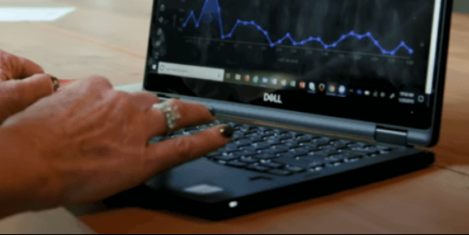To provide the best experiences, we use technologies like cookies to store and/or access device information. Consenting to these technologies will allow us to process data such as browsing behaviour or unique IDs on this site. Not consenting or withdrawing consent, may adversely affect certain features and functions.
The technical storage or access is strictly necessary for the legitimate purpose of enabling the use of a specific service explicitly requested by the subscriber or user, or for the sole purpose of carrying out the transmission of a communication over an electronic communications network.
The technical storage or access is necessary for the legitimate purpose of storing preferences that are not requested by the subscriber or user.
The technical storage or access that is used exclusively for statistical purposes.
The technical storage or access that is used exclusively for anonymous statistical purposes. Without a subpoena, voluntary compliance on the part of your Internet Service Provider, or additional records from a third party, information stored or retrieved for this purpose alone cannot usually be used to identify you.
The technical storage or access is required to create user profiles to send advertising, or to track the user on a website or across several websites for similar marketing purposes.
 New research published by Gingerbread and the Institute for Employment Studies (IES) highlights unique challenges for working single parents including for those who will lose their jobs as a result of the Covid-19 Crisis. As the country experiences a second Lockdown, and with growing unemployment and continued childcare restrictions, it is vital that the government provide better support to single parents. More →
New research published by Gingerbread and the Institute for Employment Studies (IES) highlights unique challenges for working single parents including for those who will lose their jobs as a result of the Covid-19 Crisis. As the country experiences a second Lockdown, and with growing unemployment and continued childcare restrictions, it is vital that the government provide better support to single parents. More →







 The pace of deterioration in UK job prospects is starting to slow this autumn due to very modest improvements in planned recruitment activity and a slight decrease in employers’ intentions to make redundancies. This is according to the latest quarterly
The pace of deterioration in UK job prospects is starting to slow this autumn due to very modest improvements in planned recruitment activity and a slight decrease in employers’ intentions to make redundancies. This is according to the latest quarterly 
 According to new research from
According to new research from 
 Workers have become less open about their mental health struggles since the coronavirus outbreak because of fears they could lose their jobs if they speak up, claims new research from the
Workers have become less open about their mental health struggles since the coronavirus outbreak because of fears they could lose their jobs if they speak up, claims new research from the 
 New research by management consultancy
New research by management consultancy 
 The
The 
 A new report from
A new report from 


 A new model of competitiveness devised by academics at
A new model of competitiveness devised by academics at 





















October 22, 2020
Everybody needs to be prepared for a new digital workplace
by Simon Hayward • Comment, Flexible working, Technology